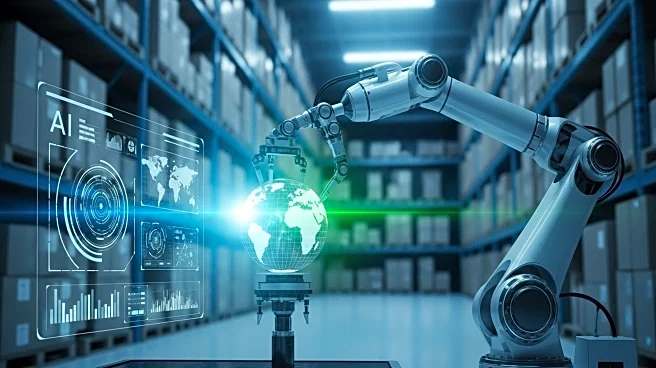What is the story about?
What's Happening?
The Association for Supply Chain Management (ASCM) has released its Top 10 Supply Chain Trends for 2026 during the ASCM CHAINge conference in Columbus, Ohio. The trends focus on the intersection of technology, geopolitics, workforce dynamics, and sustainability in shaping supply chain strategies. The insights are derived from a diverse group of practitioners, consultants, and academics who are actively engaged in the supply chain sector. Key concerns include the impact of artificial intelligence and tariffs, which are expected to significantly influence logistics and supply chain operations. The trends reflect the real-world challenges and opportunities faced by supply chain professionals.
Why It's Important?
The identification of these trends is crucial for businesses and policymakers as they navigate the complexities of global supply chains. The emphasis on artificial intelligence highlights the growing role of technology in optimizing supply chain operations, potentially leading to increased efficiency and cost savings. Meanwhile, the focus on tariffs underscores the ongoing geopolitical tensions that can disrupt trade and affect supply chain stability. Companies like YRC Worldwide, which operate in the logistics sector, may be directly impacted by these trends as they adapt to changing market conditions and regulatory environments. Understanding these trends can help businesses strategize and remain competitive in a rapidly evolving landscape.
What's Next?
As these trends continue to unfold, businesses are likely to invest more in technology to enhance their supply chain capabilities. The focus on sustainability may lead to increased adoption of eco-friendly practices and technologies. Companies will need to stay informed about geopolitical developments to mitigate risks associated with tariffs and trade policies. The ongoing dialogue among supply chain professionals at conferences like ASCM CHAINge will be essential in sharing best practices and innovative solutions to address these challenges.
Beyond the Headlines
The integration of artificial intelligence into supply chains could raise ethical and privacy concerns, particularly regarding data usage and surveillance. Additionally, the emphasis on sustainability may drive regulatory changes, requiring companies to comply with new environmental standards. These developments could lead to a shift in consumer expectations, with a growing demand for transparency and ethical practices in supply chain operations.


















